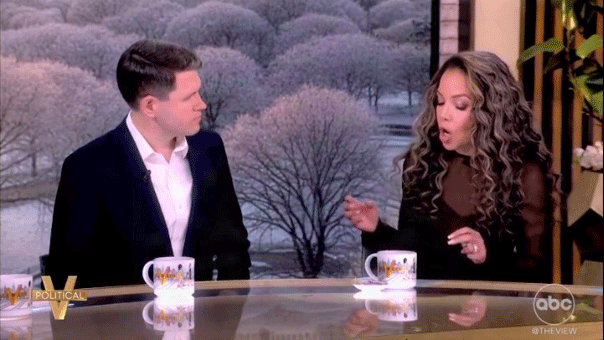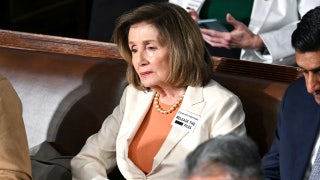Christopher Wray: COVID-19 origins most likely caused by Chinese lab 'incident'
FBI Director Christopher Wray discusses the origins of the COVID-19 pandemic on 'Special Report'
The fact-checking industry helped mislead Americans by confidently dismissing the COVID lab leak theory in 2020, as several prominent outlets have since been forced to issue embarrassing corrections.
The theory that COVID originated from a lab leak at the Wuhan Institute of Virology has now been embraced by FBI Director Christopher Wray and a bombshell report recently indicated that the U.S. Energy Department believes the virus likely started at the lab.
Back on March 21, 2020, USA Today published a fact-check titled, "Did the coronavirus originate in a Chinese laboratory?" which confidently stated that the lab leak theory was "false information" that was pushed by right-leaning outlets. It also called the notion that COVID began in a lab a "conspiracy" and insisted credible researchers believe the virus originated in nature.
"There is no evidence to suggest that the virus was created in a Chinese laboratory," USA Today told its readers at the time. "We rate this claim FALSE, based on our research. Overwhelming scientific evidence suggests the coronavirus originated in nature, and there is no evidence to suggest otherwise."
A year later, USA Today was forced to issue a correction, changing its headline to "Coronavirus not man-made or engineered but its origin remains unclear."
"This fact-check has been revised based on updated reporting since it was first published in March 2020. The rating on the claim has been changed to Partly False to reflect that reporting," USA Today put at the top of the report in February 2021.
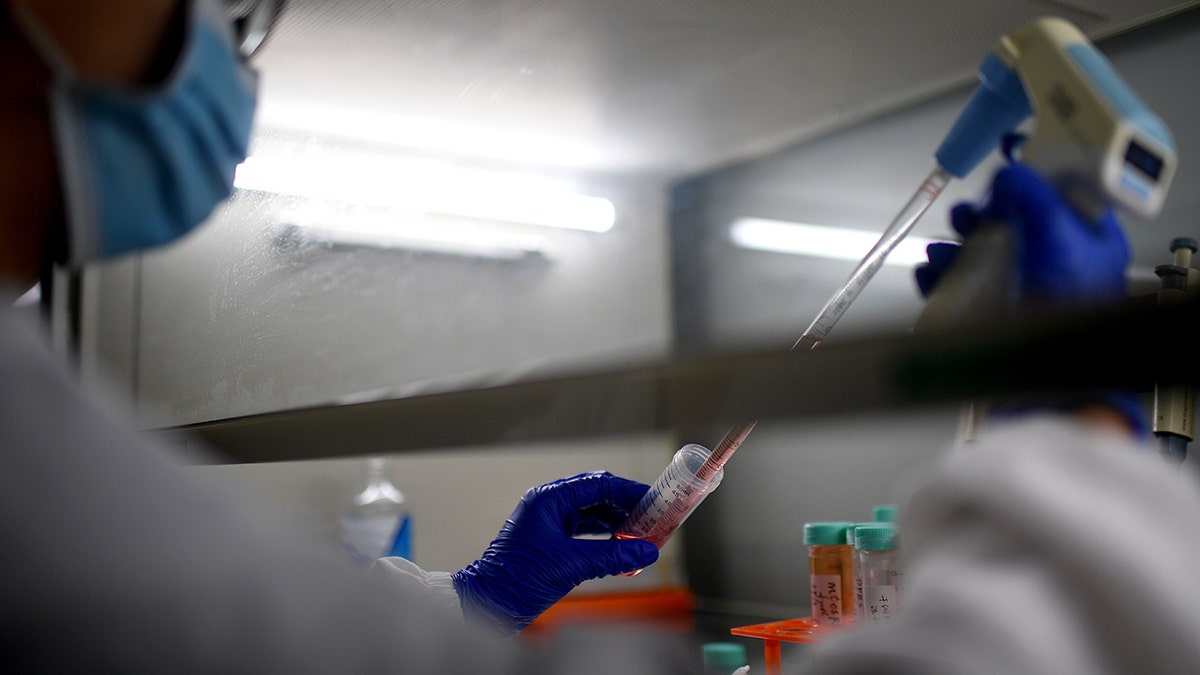
The fact-checking industry helped mislead Americans by confidently dismissing the COVID lab leak theory in 2020 but have since been forced to issue embarrassing corrections. (Feature China/Future Publishing via Getty Images)
Snopes, which calls itself the internet's "definitive face-checking resource," firmly declared on April 1, 2020, that the infectiousness of COVID "is a testament to natural selection, not bioengineering" and that any notion that it originated from a lab was a "conspiracy theory."
"An increasingly resilient class of coronavirus rumors asserts that SARS-CoV-2, the novel coronavirus that causes the disease COVID-19, was created in a lab… This post addresses the origins of these rumors and exposes the falsehoods and scientific realities that undermine such claims," the left-wing outlet wrote at the time.
Snopes determined that the two infectious disease labs located in proximity to the Huanan seafood market where some claimed COVID originated from are "the only factual elements to the ‘created-in-a-lab’ theory that are undisputed" but remained "speculative or rooted in false scientific claims."
"For example, it is factual to state that the Chinese government hid, downplayed, and misrepresented to its citizens and the world the threat posed by the novel coronavirus. It is speculative, however, to assert, as U.S. Sen. Tom Cotton did, that these actions were done to cover up a leak from a lab," Snopes told readers.
Its "bottom line" concluded that any scientific argument for the lab-leak theory was from "non-peer-reviewed papers misconstrued to be actual additions to the scientific record," adding "The actual scientific facts known about the novel coronavirus leave little room for it to be a virus of human creation."
In March 2021, a separate fact-check from Snopes took a swipe at Sen. Ted Cruz, R-Texas, who implied that COVID came from a lab, writing "Repeating something countless times over the course of a year does not actually make it a fact." Neither of the fact-checks were updated since they were published.
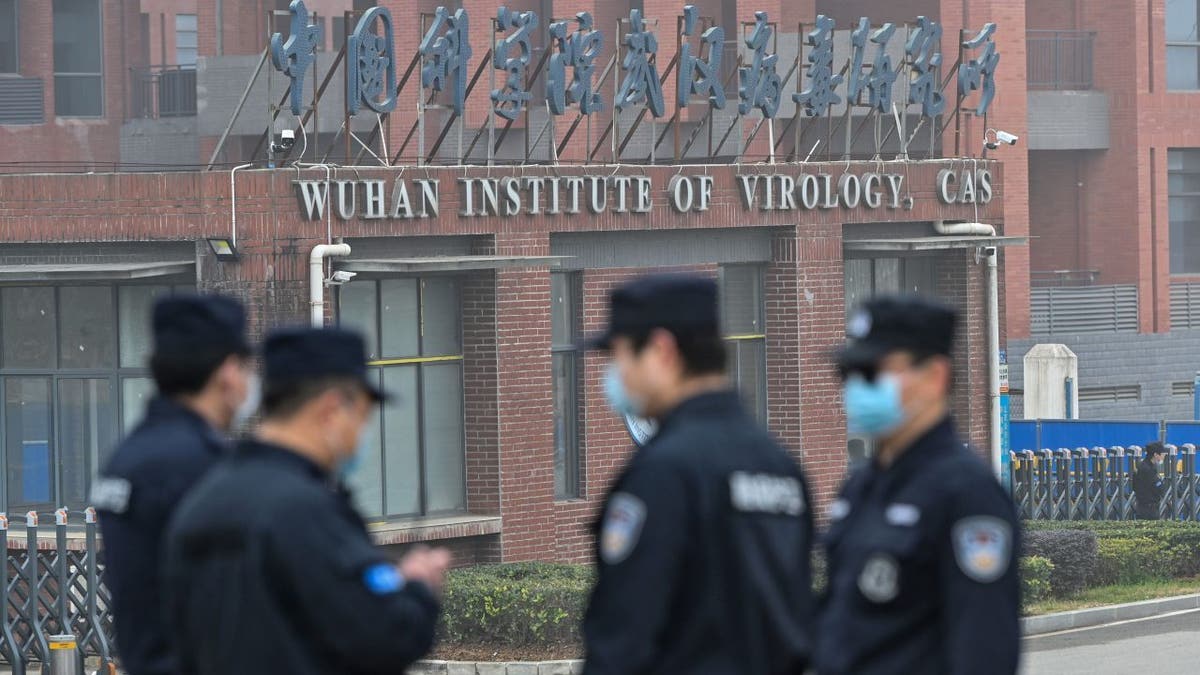
There has been growing suspicion that the Wuhan Institute of Virology was the source of the COVID pandemic, something once considered a "conspiracy theory" by the liberal media. (Hector Retamal/AFP via Getty Images)
Liberal explainer outlet Vox delved into the fact-checking game in April 2020 when it published a report, "Why these scientists still doubt the coronavirus leaked from a Chinese lab." The article criticized the Trump administration for seeking "new ways to blame China for the pandemic" to "divert attention from his failures" and implied the "spy-novel-worthy" lab leak theory simply wasn’t logical.
"Five scientists I interviewed, some of whom have worked extensively in China with researchers at the Wuhan Institute of Virology, say the pandemic can’t logically be pinned on an accident at that lab," Vox's then-science, health and climate editor Eliza Barclay – now the climate editor for New York Times Opinion – wrote in 2020. "And one expert added that it could be dangerous to get too preoccupied with this theory when the threat of another disease with pandemic potential from wildlife is so high."
CREDIBILITY CRISIS: NEW YORK TIMES HELPED MISLEAD AMERICA OVER COVID LAB LEAK THEORY
An editor’s note was added in May 2021: "Since this piece was originally published in April 2020, scientific consensus has shifted. Now some experts say the ‘lab leak’ theory warrants an investigation, along with the natural origin theory, and information in this article may be out of date."
Sen. Tom Cotton, R-Ark., was one of the earlier supporters of the lab leak theory, and CNN published a "Facts First" examination of his claims on Feb. 18, 2020. CNN insisted "it’s possible, yet unlikely, that the lab was connected to the start of the outbreak," citing an infectious disease expert who said of the lab leak theory, "I have seen no one provide any solid information to support that theory. I think at this point you can draw a line through it and say that didn’t happen."
A separate CNN headline from April 2020 reading "Nearly 30% in the US believe a coronavirus theory that’s almost certainly not true" was based on a Pew Research poll taken at the time.
"Its origin is up for debate, but it wasn’t made in a lab," CNN reported. "There’s still much we don’t know about the coronavirus pandemic, but virus experts agree on one piece of its origin story: The virus likely originated in a bat, not in a Chinese lab."
CNN didn’t issue updates on either report as of March 1, 2023.
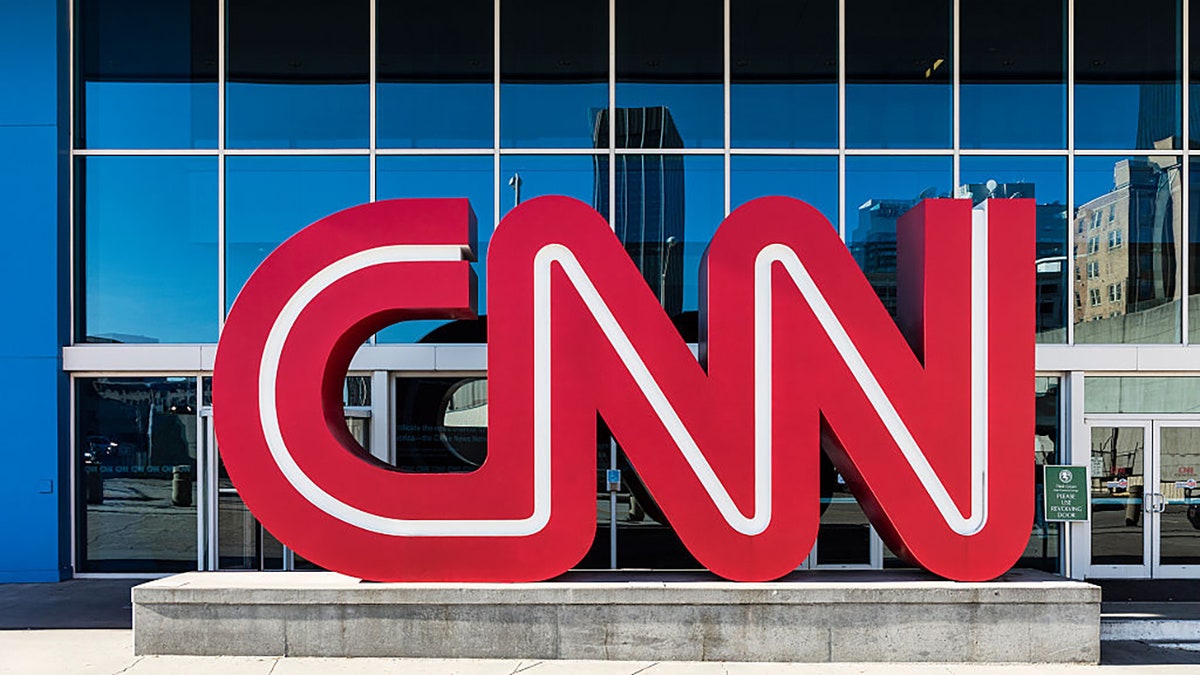
CNN logo (John Greim/LightRocket via Getty Images)
PolitiFact had one of the most alarming "fact checks" on Sept. 16, 2020, when it covered the lab leak theory. PolitiFact scolded a guest on "Tucker Carlson Tonight" for mentioning a "debunked conspiracy theory" that COVID was created in a lab.
Virologist and former postdoctoral fellow at the University of Hong Kong Dr. Li-Meng Yan told Tucker Carlson that COVID "is a man-made virus created in the lab," which contradicted the establishment narrative.
PolitiFact insisted her claim was "inaccurate and ridiculous," and handed Yan the dreaded "Pants on Fire" ruling.
In May 2021, PolitiFact issued an embarrassing editor’s note: "When this fact-check was first published in September 2020, PolitiFact’s sources included researchers who asserted the SARS-CoV-2 virus could not have been manipulated. That assertion is now more widely disputed. For that reason, we are removing this fact-check from our database pending a more thorough review. Currently, we consider the claim to be unsupported by evidence and in dispute."
Many "fact checks" and other reporting from liberal outlets relied in part on the word of Peter Daszak, whose nonprofit funded coronavirus research at the Wuhan Institute of Virology for years. Daszak's organization sent $3.4 million in National Institutes of Health grants to the Wuhan lab between 2014 and 2019, according to the Wall Street Journal, but his involvement with it didn't prevent him from playing a key role in early media dismissals of the lab-leak idea.
Daszak was among the experts featured in the Washington Post's 10-minute video report from April 2020 fact-checking the lab-leak claim.
The video highlighted the two labs being geographically close to the wet market in question at the time and the various longstanding safety concerns the facilities had going before the pandemic. But the Post's fact-checking team seemed to give the Chinese scientists and government officials the benefit of the doubt when reporting they "adamantly denied" that COVID could have come from the Wuhan Institute of Virology. The Post concluded that it was "doubtful" the virus came from the lab.
"The balance of scientific evidence strongly suggests the conclusion of the new coronavirus emerged from nature, be it in the Wuhan market or somewhere else," the Post fact-checker said. "Too many perfect coincidences would have had to take place for it to have escaped from a lab, but the Chinese government has not been willing or able to provide information that would clarify lingering questions about any possible role played by the Wuhan labs."
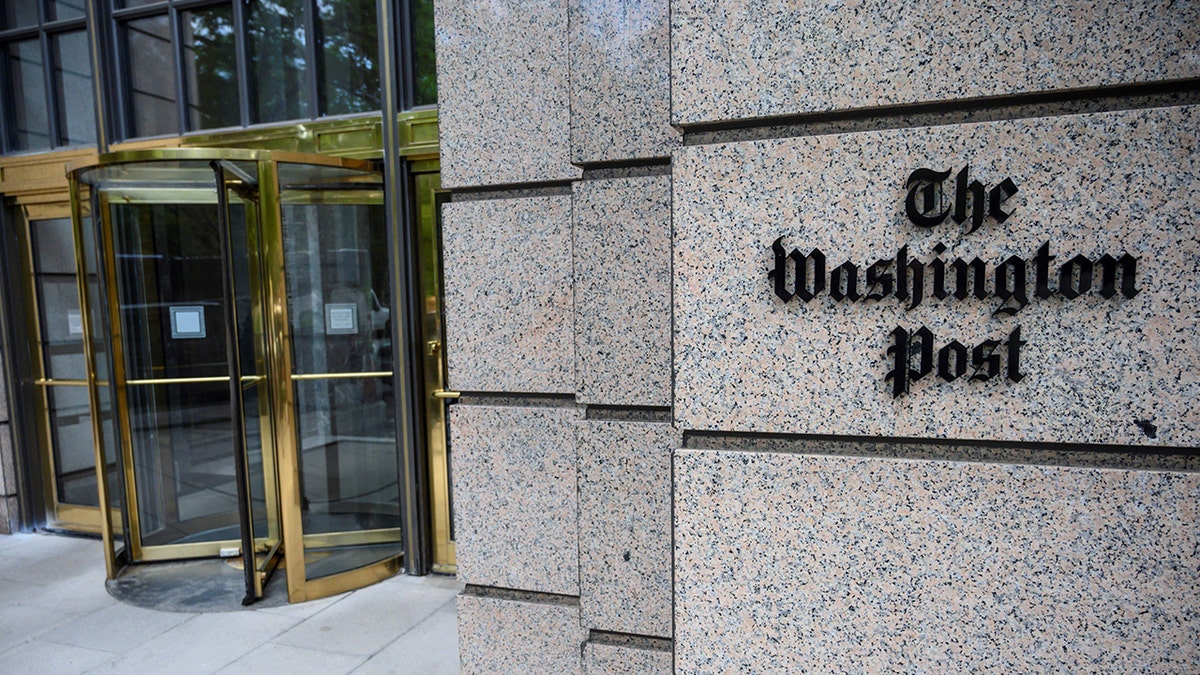
The Washington Post issued an update to its fact-check in May 2021 after declaring the lab-leak theory "doubtful" in April 2020. (Eric Baradat/AFP via Getty Images)
In May 2021, the Post added an "update" to its video report, saying "several new pieces of evidence" have emerged since April 2020.
"No natural cause has been identified for the virus and some prominent scientists said they are more receptive to the lab-leak theory," the update read in part.
Additionally, The Post's veteran fact-checker Glenn Kessler penned a "timeline" in May 2021 laying out how the lab-leak theory "suddenly became credible" over the course of 18 months.
While Kessler acknowledged "history books will reward" Cotton if his assertion about the lab-leak was indeed correct all along, he appeared to downplay the Trump administration's stance at the time.
"The Trump administration also sought to highlight the lab scenario but generally could only point to vague intelligence. The Trump administration’s messaging was often accompanied by anti-Chinese rhetoric that made it easier for skeptics to ignore its claims," Kessler wrote.
In recent days, several prominent liberals like MSNBC host Mehdi Hasan and CNN columnist Jill Filipovic have similarly remarked that opposition to the lab-leak theory was due in part to who was making the argument.
Daszak was also cited by Facebook fact-checking partner Science Feedback in a February 2020 post headlined, "Scientific evidence indicates virus that causes COVID-19 infection is of natural origin, not the result of human engineering." In 2020, he penned a Guardian op-ed assailing "conspiracy theorists" for blaming a lab leak.
MEDIA SCOLDED, LAMPOONED FOR DISMISSING NOW-LIKELY COVID LAB LEAK THEORY AS MISINFORMATION
Conservative strategist Chris Barron believes the media "abandoned any pretext of objective journalism" surrounding COVID origins simply because it didn’t like President Trump, who embraced the lab leak theory.
Last month, "Uncovered" author Steve Krakauer explained the fact-checking industry at large is a microcosm of the media’s treatment of Trump. In his new book, Krakauer examines what he calls a "fact-checking fetish" the press had during the Trump administration that has essentially disappeared since President Biden moved into the White House.
"It saw the rise of people like [CNN fact-checker] Daniel Dale. I mean, they literally became celebrities. They were described in these glowing terms on social media and on air, on CNN. And essentially what they were doing was doing a fact check in some ways and in other ways, a sort of feeling check, if you will, of how what Trump said, the exaggerations in some cases, the lies, and tracking this over time," Krakauer told Fox News Digital.
"The Washington Post decided to start a database of every quote unquote, lie or mistruth that President Trump said. It got to 10,000, they had a whole party, it seemed like, on social media when that happened," he continued. "I think the instinct to fact-check people in power is actually one that makes a lot of sense. The problem, though, is what happened after."
CLICK HERE TO GET THE FOX NEWS APP
Fox News’ David Rutz contributed to this report.









